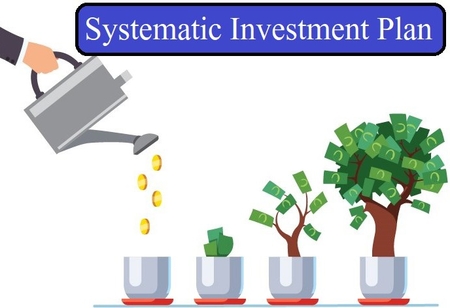Why are Small-cap funds Being Introduced when their values appear high?
By Consultants Review Team
 SIPs into mutual funds reached an all-time high in September, surpassing the Rs 16,000-crore mark for the first time, although inflows into small and midcap funds eased due to sky-high valuations in select stocks.
SIPs into mutual funds reached an all-time high in September, surpassing the Rs 16,000-crore mark for the first time, although inflows into small and midcap funds eased due to sky-high valuations in select stocks.
Despite a drop in net flows in both the small-cap and midcap categories compared to prior months, both were among the top receivers of net inflows in September. "The drop in net flows in these categories could be attributed to some profit booking by investors combined with concerns about inflated valuations in some of these segments," Melvyn Santarita, Analyst - Manager Research, Morningstar Investment Adviser India, said.
Despite the fact that net inflows into small-cap funds plummeted 37% in September 2023, to Rs 2,678.47, fund companies are unconcerned about new fund offers. Within the same week, Baroda BNP Paribas MF introduced the Baroda BNP Paribas Small Cap Fund, the 23rd actively-managed scheme in this category, while Quantum launched the Quantum Small Cap Fund, an open-ended equity plan that primarily invests in small-cap equities.
The Quantum NFO will allocate 65-100% in equity and equity-related instruments of small-cap companies, 0-35% in equity and equity-related instruments of companies other than small-cap companies, and 0-35% in debt and money market instruments.
The Baroda BNP Paribas Small Cap Fund would invest in small-cap companies with more than 65 percent of their net assets. It's worth noting that existing small-cap funds now invest 80% in small-caps, 15% in mid-caps, and the rest in large companies.
Currently, ICICI Pru Smallcap and DSP Small Cap have the biggest allocation to small-cap equities. Several fund houses, including Nippon India Mutual Fund and Tata Mutual Fund, have also stopped accepting new lump sum deposits in their respective small-cap schemes, owing to the massive run-up in the prices of most small-cap stocks, which has caused their valuations to skyrocket.
"Given the recent sharp rally in the small-cap space and increasing investor participation through high-ticket investments, the step was warranted." According to Samir Rachh, Fund Manager-Equity, Nippon India Mutual Fund, "we thought it was in the best long-term interest of fund investors for money to arrive in a more calibrated manner." Small-cap is a less liquid market with a high impact cost. Nonetheless, both Baroda BNP Paribas and Quantum remain optimistic about the long-term growth prospects of several high-growth enterprises in this sector.
"Over the last year, small-cap mutual fund returns have been in the range of 25-30%, far outpacing large-cap funds." Typically, retail investors seek past mutual fund returns. When the rise is so powerful, they tend to misjudge the asset class's risk profile. As a result, SIP inflows into small caps have increased. "This is an excellent opportunity for fund managers to capitalize on the momentum and launch new small-cap funds," said Wint Wealth Co-Founder and CEO Ajinkya Kulkarni.




